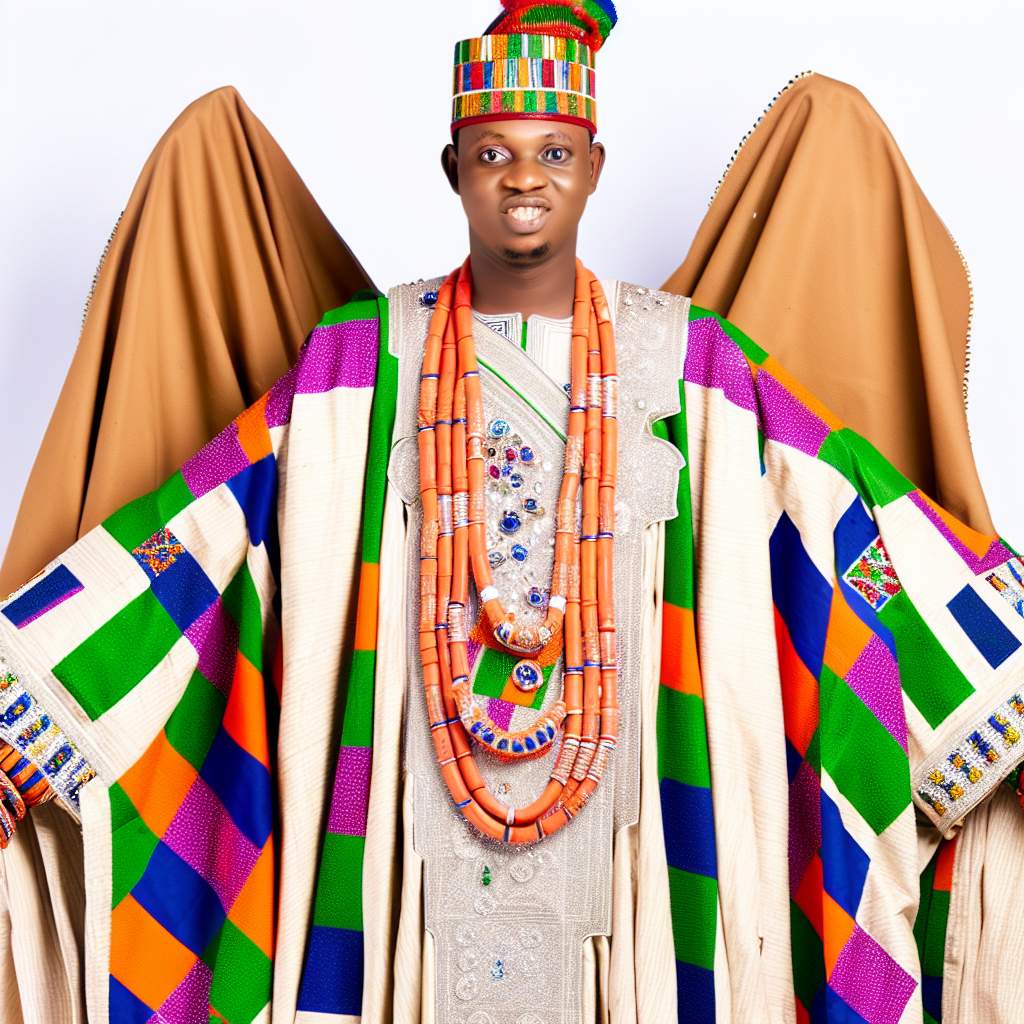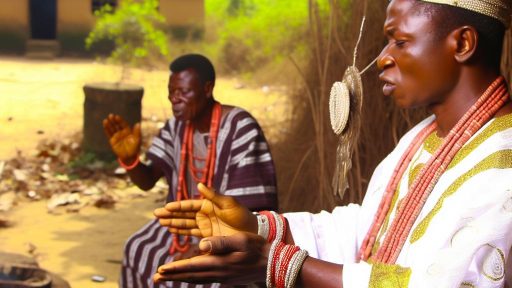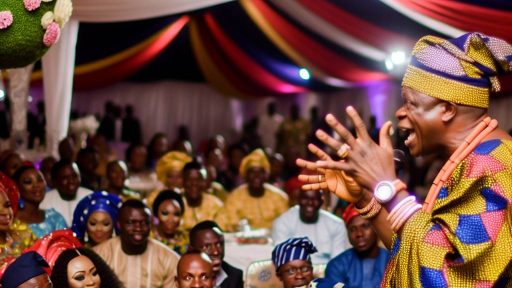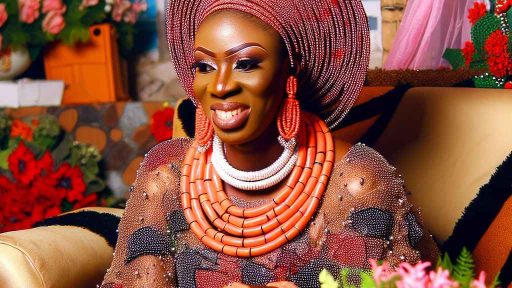Historical Significance of Traditional Wedding Outfits in Nigeria
Cultural Heritage
Nigerian traditional wedding outfits symbolize rich cultural heritage.
They reflect the diverse ethnic groups within the country.
Each group showcases its unique patterns and styles.
These outfits often incorporate historical narratives and traditions.
Celebration of Identity
Wearing traditional attire during weddings celebrates self-identity.
It connects individuals to their ancestral roots.
This connection fosters a sense of belonging in the community.
Consequently, it strengthens interpersonal and familial ties.
Symbol of Love and Commitment
Traditional wedding outfits represent love between two partners.
They signify the commitment made during the marriage ceremony.
As such, they become tokens of affection and unity.
Couples often choose outfits that resonate with their stories.
Rituals and Ceremonies
Traditional outfits play a vital role in wedding rituals.
They are essential for cultural ceremonies like the ‘Igba Nkwu’ among the Igbo.
This ceremony showcases the bride’s section in the community.
In contrast, Yoruba weddings highlight the groom’s family through attire.
Artistic Expression
The design and craftsmanship of these outfits reflect artistic skills.
Tailors blend colors, textures, and symbols to create masterpieces.
Likewise, traditional fabrics convey messages about social status.
Handmade garments often feature intricate beadwork and embroidery.
Economic Contribution
The traditional wedding outfit industry enhances local economies.
It creates jobs for tailors, designers, and fabric merchants.
The demand for these outfits promotes cultural tourism.
Additionally, it encourages the use of indigenous materials.
Cultural Symbols Embedded in Different Fabric Patterns
The Significance of Fabrics in Nigerian Traditions
Nigerian traditional wedding outfits are vibrant and meaningful.
Fabrics convey cultural identity and heritage.
Different patterns represent various ethnic groups.
Each design tells a story spanning generations.
Prominent Fabric Types and Their Meanings
Aso Oke is a revered fabric in Yoruba culture.
This handwoven material symbolizes status and elegance.
It often incorporates vibrant colors and intricate designs.
The Kente cloth is synonymous with the Akan people.
Its bright colors exemplify wealth and prestige.
Furthermore, Kente patterns have specific meanings, often linked to proverbs.
Patterns and Their Symbolic Meanings
The Adinkra symbols in fabrics hold deep meanings.
These symbols educate wearers about values and history.
For instance, the “Fawohodie” symbol represents freedom and independence.
Similarly, the “Nkyinkyim” symbol signifies initiative and dynamism.
Each adinkra pattern is carefully chosen for its significance.
Color Symbolism in Traditional Outfits
Colors play a crucial role in Nigerian weddings.
For instance, red often symbolizes love and passion.
Green represents fertility and growth.
Moreover, yellow is associated with wealth and prosperity.
These colors are strategically applied within fabric patterns.
The Role of Accessories in Cultural Reflection
Accessories complement traditional outfits and deepen their significance.
Beaded jewelry is popular among many Nigerian cultures.
It symbolizes beauty, elegance, and femininity.
Additionally, headwraps are essential in many ethnic groups.
They represent respect and honor for cultural roots.
Color Meanings Associated with Nigerian Wedding Attire
Significance of Color in Weddings
Colors play a vital role in Nigerian traditional weddings.
Each color represents different meanings and emotions.
A well-chosen color scheme can enhance the wedding experience.
Popular Colors and Their Meanings
Red symbolizes love and passion.
It is a popular choice for brides and grooms.
Yellow represents joy and happiness.
This bright color spreads positivity during celebrations.
Blue signifies tranquility and peace.
Couples often choose this for a calming atmosphere.
Green stands for fertility and prosperity.
This color reflects the hope for a fruitful union.
Cultural Variations in Color Choices
Nigeria has diverse cultures, each with unique traditions.
For example, Igbo weddings often feature bright colors to signify vibrancy.
Yoruba weddings may focus on royal blues and golds.
These variations reflect the couple’s heritage and beliefs.
Color Combinations for Outfits
Couples often select specific color combinations for their outfits.
Traditional attire frequently incorporates two or more colors.
For instance, gold and purple create a regal appearance.
Similarly, combining orange and green symbolizes warmth and growth.
Impact of Color on Wedding Guests
The colors chosen can also influence wedding guests.
Guests feel the atmosphere set by the couple’s attire.
Bright colors like pink and yellow uplift spirits during the celebration.
Conversely, darker colors can add sophistication and elegance.
Find Out More: How Food Represents Unity in Nigerian Traditional Weddings
Differences in Traditional Outfits Across Nigerian Ethnic Groups
Yoruba Traditional Attire
The Yoruba people have a rich cultural heritage reflected in their attire.
Main garments include the Agbada for men and Iro and Buba for women.
Colors and designs vary significantly, highlighting social status and occasion.
Additionally, intricate beadwork often adorns their outfits for weddings.
Ibo Traditional Outfit
The Ibo ethnic group also showcases unique wedding outfits.
Men typically wear the Isi Agu, a beautifully patterned shirt.
Women usually choose the George wrapper and blouse combination.
Red and white colors symbolize prosperity and purity in Ibo culture.
Hausa Traditional Clothing
The Hausa people exhibit elegance in their traditional outfits.
Male attire often consists of the Baban Riga and a cap called Fula.
Women wear a richly colored gown known as the Shadda.
Hausa designs frequently incorporate embroidery, showcasing craftsmanship.
Efik Traditional Wear
The Efik ethnic group is known for their elaborate ceremonial outfits.
Men dress in the traditional Etibo, which is often adorned with beads.
Women wear the beautifully pleated dress called the Nkankan.
Both attire types reflect the Efik’s rich history and societal values.
Nupe and Gwari Outfits
The Nupe and Gwari tribes display distinct styles in their outfits.
Nupe men often wear a loose flowing robe called the Kufi.
Gwari women may sport a colorful wrapper with a matching blouse.
Patterns signify tribal affiliation and personal status within society.
Cultural Significance of Colors and Patterns
Across all ethnic groups, colors play a vital role in traditional outfits.
Each color often carries symbolic weight and meaning.
Patterns can signify family lineage, occupation, or marital status.
Delve into the Subject: 7 Unique Nigerian Wedding Customs That Are Making a Comeback
The Role of Accessories in Enhancing the Symbolism of Wedding Outfits
Significance of Accessories
Accessories play a critical role in Nigerian traditional weddings.
They enhance the overall aesthetic and convey deeper meanings.
Each accessory represents different aspects of culture and identity.
Moreover, they contribute to the couple’s status within the community.
Types of Accessories
Jewelry is one of the most prominent types of accessories.
Gold and silver pieces often symbolize wealth and prosperity.
Additionally, they highlight the family’s social standing.
Headgear, such as gele for women and cap for men, is essential.
These items signify respect and adherence to tradition.
Cultural Symbolism
Colors in accessories also carry significant meanings.
For example, red often represents passion and love.
Meanwhile, green can symbolize fertility and growth.
This use of color adds another layer of symbolism to the outfits.
Personalization and Family Heritage
Customized accessories showcase individual style and family heritage.
Families often pass down traditional pieces through generations.
Thus, these items reflect the couple’s history and familial ties.
Additionally, they strengthen bonds between the couple and their families.
Enriching the Traditional Wedding Experience
Ultimately, accessories enrich the traditional wedding experience.
They merge personal expression with cultural heritage.
Their symbolism goes beyond aesthetics; it fosters connections and cultural pride.
Gain More Insights: Unveiling Unique Yoruba Wedding Customs You Didn’t Know Existed

Religious Symbolism in the Choice of Wedding Attire
Spiritual Significance of Colors
The colors worn during Nigerian traditional weddings carry profound meanings.
For instance, white often symbolizes purity and innocence.
Similarly, red represents love, passion, and vitality.
Green signifies fertility and prosperity in many cultures.
Moreover, blue often reflects peace and harmony within the relationship.
Cultural Patterns and Designs
Nigerian traditional attire features unique patterns that embody cultural beliefs.
For example, the use of intricate embroidery can signify wealth and status.
Furthermore, specific designs may represent tribal affiliations or ancestry.
These patterns link the couple to their heritage and community.
Religious Influences on Attire Choices
In many cases, religious beliefs impact wedding attire decisions.
Christian couples might incorporate biblical themes in their outfits.
For instance, they may choose garments adorned with symbols of faith.
Additionally, Yoruba traditions often include spiritual elements such as prayers on clothing.
The Role of Accessories
Accessories further enhance the symbolic meaning of wedding attire.
Headpieces often denote status and cultural significance.
Jewelry, particularly those passed down through generations, carries legacy.
Ultimately, each accessory adds depth to the couple’s narrative.
Significance of Rituals and Customs
Certain rituals accompany the choice of wedding garments.
For example, the exchanging of attire may signify unity of families.
Additionally, there might be blessings that customize outfits for divine favor.
These customs reinforce the importance of community and faith.
See Related Content: Discover How Igbo Traditional Weddings Influence Modern Marriage Practices
Impact of Modern Influences on Traditional Wedding Outfits
Cultural Adaptations
Modern influences have prompted significant cultural adaptations in Nigerian traditional wedding outfits.
Designers now blend traditional fabrics with contemporary styles.
This fusion embodies the evolving identity of Nigerian couples.
Consequently, couples often choose outfits that reflect personal aesthetics.
Global Fashion Trends
The global fashion scene influences Nigerian wedding attire.
Designers draw inspiration from international trends like minimalism and intricate embellishments.
Many couples desire unique outfits that stand out in a global context.
As a result, traditional outfits now often feature modern cuts and silhouettes.
Social Media and Visibility
Social media platforms have changed how couples perceive wedding attire.
Instagram and Pinterest showcase diverse wedding outfit inspirations.
This exposure encourages couples to experiment with their traditional outfits.
Consequently, many couples now incorporate modern accessories into their looks.
Influence of Western Fashion
Western fashion styles significantly inform Nigeria’s traditional wedding attire choices.
Many couples embrace bridal gowns and suits alongside traditional attire.
This blending of styles creates unique hybrid looks for the ceremony.
Overall, it reflects the globalization of fashion in Nigerian weddings.
Emerging Designers and Innovations
A new generation of designers is reshaping traditional wedding outfits.
These designers innovate by mixing traditional techniques and modern aesthetics.
Many incorporate eco-friendly materials into their collections.
Such innovations create sustainable options for conscious couples.
Economic Factors
The modern economy also influences traditional wedding outfits.
Availability of materials and costs play crucial roles in outfit choices.
Furthermore, couples may opt for rental services to reduce expenses.
This shift promotes a more accessible approach to traditional attire.
Ceremonial Significance of Specific Garments in the Wedding Process
The Importance of Traditional Attire
Traditional attires hold profound meaning in Nigerian weddings.
They symbolize cultural heritage and family values.
For instance, the use of colorful fabrics showcases community identity.
Moreover, these garments often reflect the status of the couple.
Key Garments in Nigerian Weddings
The Bride’s Attire
The bride often wears a beautiful gele and classy dress.
The gele, a traditional head tie, represents elegance and honor.
Her attire incorporates vibrant colors to signify joy and celebration.
The Groom’s Attire
The groom typically dresses in an intricately embroidered agbada.
This outfit symbolizes strength and leadership.
It often features elaborate designs that mark his distinguished status.
Family Involvement Through Attire
Family members wear specific outfits to represent their roles.
Parents often don matching outfits to showcase unity.
Siblings may wear coordinated outfits to highlight familial bonds.
Cultural Significance of Accessories
Accessories carry symbolic gestures in traditional weddings.
Jewelry pieces may symbolize wealth and prosperity.
Moreover, they enhance the overall aesthetic of the outfits.
Summary of Symbolism
Nigerian traditional wedding outfits embody deep cultural meanings.
They illustrate the couple’s heritage and the importance of family.
These garments elevate the significance of the wedding ceremony.
Additional Resources
Why (Reluctantly) Having a Traditional Nigerian Wedding Was the …
AITA for wanting to wear a my cultural traditional clothes to my future …




